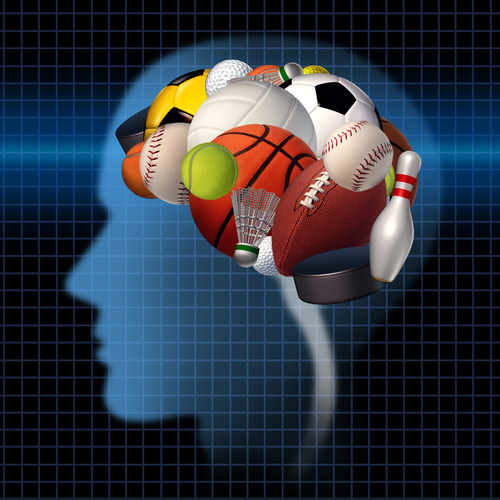Antidepressants have become an essential tool in the treatment of depression, anxiety, and other mood disorders. Their usage has skyrocketed in recent years as mental health issues receive more attention and medical understanding improves. Despite their widespread use, antidepressants remain a topic of debate, with many weighing their benefits against the side effects they often carry. At the same time, alternative therapies have gained attention as complementary or standalone treatments. This article seeks to explore the intricacies of antidepressants by examining their effectiveness, potential side effects, and alternative approaches for those looking to manage mental health conditions.
Understanding Antidepressants
Antidepressants are medications designed to alleviate the symptoms of depression, anxiety, and related disorders by affecting neurotransmitter levels in the brain. These chemical messengers—such as serotonin, norepinephrine, and dopamine—play a crucial role in mood regulation. When these chemicals are imbalanced, individuals may experience depression or anxiety. Antidepressants help restore this balance, allowing patients to regain emotional stability.
There are several types of antidepressants, each with its own mechanism of action. The most common classes include:
Selective Serotonin Reuptake Inhibitors (SSRIs)
Serotonin and Norepinephrine Reuptake Inhibitors (SNRIs)
Tricyclic Antidepressants (TCAs)
Monoamine Oxidase Inhibitors (MAOIs)
Atypical Antidepressants
Each of these medications works differently, but they all aim to increase the levels of neurotransmitters in the brain. SSRIs and SNRIs are the most frequently prescribed due to their efficacy and relatively favorable side effect profiles.
The Benefits of Antidepressants
Antidepressants can offer significant relief to those suffering from debilitating mood disorders. For many individuals, these medications have been life-changing, allowing them to lead productive, fulfilling lives after months or even years of depression.
Symptom Relief:
One of the most immediate benefits of antidepressants is the reduction of depressive symptoms. Within weeks of starting a regimen, patients often report improved mood, increased energy, and reduced anxiety. While antidepressants may not “cure” depression, they can provide much-needed relief from its most overwhelming symptoms.
Long-Term Treatment:
In cases of chronic depression or anxiety, antidepressants can serve as long-term treatment options. This is particularly important for individuals whose depression is linked to persistent brain chemistry imbalances or who experience recurrent episodes of major depression.
Improved Quality of Life:
By stabilizing mood and reducing the frequency and intensity of depressive episodes, antidepressants can significantly improve quality of life. Many patients find that they are better able to engage in work, maintain relationships, and enjoy daily activities once their symptoms are under control.
Support for Other Therapies:
Antidepressants are often prescribed in combination with other forms of treatment, such as cognitive-behavioral therapy (CBT). This holistic approach can yield better results, as antidepressants manage the biological aspects of depression while therapy addresses behavioral and cognitive patterns.
Potential Side Effects
While the benefits of antidepressants can be profound, they are not without risks. Like all medications, antidepressants can cause side effects, some of which may be mild and short-lived, while others can be more severe and persistent.
Physical Side Effects:
The most common physical side effects of antidepressants include nausea, weight gain, headaches, dizziness, dry mouth, and fatigue. For many patients, these symptoms subside as the body adjusts to the medication, but in some cases, they persist.
Emotional Blunting:
Some patients report a sense of emotional blunting or numbness while on antidepressants. Although they may no longer experience the deep lows of depression, they might also find it harder to feel positive emotions. This can lead to a sense of detachment or dissatisfaction, even if depression has improved.
Sexual Dysfunction:
One of the most prevalent side effects, particularly with SSRIs, is sexual dysfunction. This can manifest as reduced libido, difficulty achieving orgasm, or erectile dysfunction. These symptoms can significantly affect a patient’s quality of life and relationships.
Increased Risk of Suicide:
While antidepressants are designed to alleviate depression, there is some evidence that they may increase the risk of suicidal thoughts and behaviors, particularly in young adults and teenagers. This risk tends to be highest during the first few weeks of treatment, prompting close monitoring by healthcare providers.
Dependency and Withdrawal:
Although antidepressants are not considered addictive in the traditional sense, patients who have been on these medications for extended periods can develop a dependence. Suddenly discontinuing the medication can lead to withdrawal symptoms such as dizziness, irritability, and flu-like symptoms, making it crucial to taper off antidepressants under medical supervision.
Alternatives to Antidepressants
While antidepressants can be effective, they are not the only option available for managing depression and anxiety. For those who are reluctant to use medication or who experience adverse side effects, there are several alternative treatments that can offer relief.
Psychotherapy:
Cognitive-behavioral therapy (CBT), interpersonal therapy (IPT), and other forms of counseling are well-established methods for managing depression. Therapy can help individuals identify negative thought patterns, develop healthier coping strategies, and address underlying issues contributing to their mental health conditions. For some patients, therapy alone may be enough to manage symptoms.
Exercise:
Regular physical activity has been shown to have significant antidepressant effects. Exercise boosts endorphins and serotonin levels, leading to improved mood and reduced anxiety. Additionally, the physical health benefits of exercise can help combat the lethargy and fatigue often associated with depression.
Diet and Nutrition:
Emerging research suggests that certain dietary changes may improve mental health. Diets rich in omega-3 fatty acids, antioxidants, and vitamins like B12 and D have been linked to reduced depression. Some studies also indicate that a healthy gut microbiome can positively impact mood regulation, making probiotics and a balanced diet important factors in mental health.
Mindfulness and Meditation:
Mindfulness-based therapies have gained popularity as alternative treatments for depression. Mindfulness meditation encourages individuals to focus on the present moment, reducing rumination and negative thinking. Mindfulness-Based Cognitive Therapy (MBCT) combines meditation with traditional CBT techniques, and has shown promise in preventing depression relapse.
Natural Supplements:
Herbal remedies and supplements like St. John’s Wort, SAM-e, and 5-HTP are commonly used for mild to moderate depression. However, these supplements can interact with prescription medications, so it is important to consult a healthcare provider before incorporating them into a treatment plan.
Lifestyle Adjustments:
Sleep hygiene, stress management, and creating a supportive social network can play a crucial role in managing depression. Establishing a consistent routine, setting realistic goals, and seeking out positive experiences can help alleviate the symptoms of depression over time.
Finding the Right Balance
Choosing whether to take antidepressants is a highly personal decision that should be made in consultation with a healthcare provider. It’s important to weigh the potential benefits against the risks and consider alternative therapies if side effects are a concern. In many cases, a combined approach—using medication alongside therapy, exercise, or lifestyle changes—can provide the best outcome for patients seeking relief from depression or anxiety.
Antidepressants can be life-changing for those struggling with mental health conditions, but they are not the only path to recovery. Understanding the full scope of treatment options, including alternatives, allows individuals to make informed choices about their mental health care. The goal is to achieve a balance that fosters emotional well-being while minimizing unwanted side effects

















